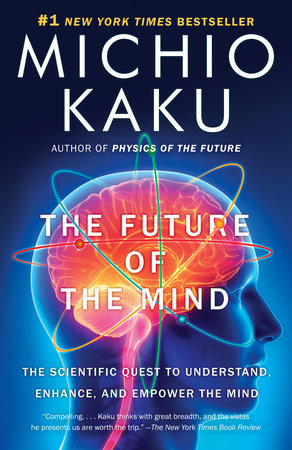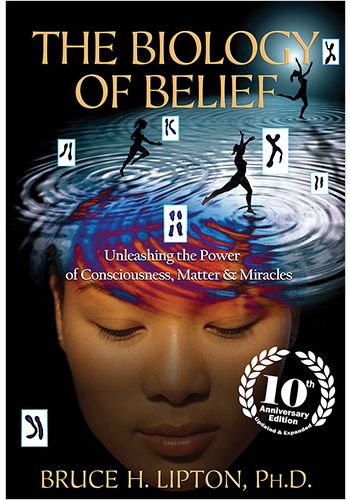
By Ervin László — 2014
An exploration of the current revolution in scientific thought and the newest scientific findings in support of the Akashic field. • Explains how the new Akasha paradigm recognizes the interconnection of all things in space and time through the quantum resonance of the Akashic field. See more...
FULL SUMMARY
An exploration of the current revolution in scientific thought and the newest scientific findings in support of the Akashic field. • Explains how the new Akasha paradigm recognizes the interconnection of all things in space and time through the quantum resonance of the Akashic field. • Reveals the cosmos to be a self-actualizing, self-organizing whole, bringing forth life and consciousness in countless universes. • Explores the latest discoveries in the sciences of life, mind, and cosmos. Science evolves through alternating phases of “normal science” and radical shifts that create scientific revolutions. We saw this at the turn of the 20th century, when science shifted from a Newtonian worldview to Einstein’s relativity paradigm, and again with the shift to the quantum paradigm. Now, as we recognize the nonlocal interconnection of all things in space and time, we find our scientific worldview shifting once again.
YOU MIGHT ALSO LIKE
CLEAR ALL
BY TOPIC
BY TEACHER
BY TYPE
FILTER

TOPIC
- Healing Approaches (18)
- Neuroscience (18)
- Psychology and Spirituality (17)
- Transformation (17)
- Self-Discovery (16)
- Spiritual Development (16)
- Quantum Physics (14)
- Search for Purpose (14)
- Identity (13)
- Altered States (12)
- Human Potential (12)
- Imagination and Creativity (12)
- Self-Healing (12)
- Self-Reflection Practices (12)
- Mind-Body Connection (11)
- Self-Development (10)
- Spiritual Life (10)
- Awareness (9)
- Conscious Evolution (9)
- Enlightenment (9)
- Meditation (9)
- Self-Realization (9)
- Authenticity (8)
- Connection with Nature (8)
- Near-Death Experience (8)
- Afterlife (7)
- BIPOC Well-Being (7)
- Buddhism (7)
- Inner Peace (7)
- Interdependence (7)
- Mysticism (7)
- Philosophical Approaches (7)
- Spiritual Quest (7)
- Transpersonal Psychology (7)
- Black Well-Being (6)
- Finding Meaning (6)
- Integrative Medicine (6)
- Spiritual Direction (6)
- Spiritual Healing (6)
- The Divine (6)
- Wholeness (6)
- Women’s Well-Being (6)
- Addiction (5)
- Female Empowerment (5)
- God (5)
- Inner Life (5)
- Non-Duality (5)
- Psychology (5)
- Sacred Feminine (5)
- Self-Limiting Beliefs (5)
- Self-Love (5)
- Trauma Healing (5)
- Visions and Hallucinations (5)
- Activism/Service (4)
- Anxiety (4)
- Archetypes (4)
- Death and Dying (4)
- Depression (4)
- Emotional and Mental Health (4)
- Energy Healing (4)
- Epigenetics (4)
- Growth Mindset (4)
- Habits of Mind (4)
- Islam (4)
- Life Challenges (4)
- Love (4)
- Neoshamanism (4)
- Past Lives and Reincarnation (4)
- Perception (4)
- Psychedelic-Assisted Therapy (4)
- Self-Care (4)
- Self-Esteem (4)
- Self-Mastery (4)
- Spiritual Practices (4)
- The Unconscious (4)
- Addiction Recovery (3)
- Affirmations (3)
- Belonging (3)
- Christianity (3)
- Chronic Health Conditions (3)
- Cognitive Psychology (3)
- Compassion (3)
- Dharma (3)
- DMT (3)
- Dreamwork (3)
- Ecospirituality (3)
- Ego Transcendence (3)
- Faith (3)
- Family Dynamics (3)
- Fellowship and Community (3)
- Global Challenges (3)
- Guided Meditation (3)
- Happiness (3)
- Higher Calling (3)
- Holism (3)
- Holotropic Breathwork (3)
- Jungian Analysis (3)
- Living with Illness (3)
- LSD (3)
- MDMA (3)
- Memory (3)
- Moral Philosophy (3)
- Naturopathy (3)
- Neuropsychology (3)
- Oneness (3)
- Other Dimensions and Beings (3)
- Passion (3)
- Prayer (3)
- Presence (3)
- Psilocybin (3)
- Shadow (3)
- Soul Mission (3)
- Spirituality and Health (3)
- Tibetan Buddhism (3)
- Transcendent Experience (3)
- Yoga (3)
- Aging (2)
- Anger (2)
- Breathwork (2)
- Child’s ADD/ADHD (2)
- Child’s Challenging Behavior (2)
- Children’s Well-Being (2)
- Cognition (2)
- Community Healing (2)
- Comparing Belief Traditions (2)
- Cross-Cultural Dynamics (2)
- Diamond Approach (2)
- Ego (2)
- Embodiment (2)
- Empathy (2)
- Empowerment (2)
- Facing Own Death (2)
- Family Acceptance (2)
- Focus (2)
- Following Bliss (2)
- Forest Bathing (2)
- Freedom (2)
- Goddess (2)
- Grace (2)
- Honoring Emotion (2)
- Hope (2)
- Illness and Injury (2)
- Indigenous Healing Approaches (2)
- Integrity (2)
- Intention (2)
- Intergenerational Trauma (2)
- Intuition (2)
- Journaling (2)
- Judaism (2)
- Lifestyle Medicine (2)
- Mindfulness (2)
- Negative Self-Talk (2)
- Parapsychology (2)
- Parenting (2)
- Past Life Regression (2)
- Personal Development (2)
- Physical Health (2)
- Psychedelic Research (2)
- Racial Identity (2)
- Racial Justice (2)
- Racism (2)
- Relationship Challenges (2)
- Religious Experience (2)
- Ritual (2)
- Self-Expression (2)
- Shamanic Healing (2)
- Social Justice (2)
- Spiritual Crisis (2)
- Stress Management (2)
- Synchronicity (2)
- Taoism (2)
- Trauma (2)
- Unfulfilled Career (2)
- Values (2)
- Visualization (2)
- Well-Being (2)
- A Course in Miracles (1)
- Acceptance (1)
- Accepting Love (1)
- Access to Education (1)
- Alcohol Addiction (1)
- Anima/Animus (1)
- Astral Projection (1)
- Athlete Well-Being (1)
- Awe (1)
- Ayahuasca (1)
- Ayurveda (1)
- Channeling (1)
- Chanting (1)
- Child’s Autism (1)
- Child’s Trauma (1)
- Christian Mysticism (1)
- Cognitive Behavioral Therapy (1)
- Coming Out (1)
- Communication Skills (1)
- Confidence (1)
- Connection (1)
- Creative Well-Being (1)
- Decision Making (1)
- Disabled Well-Being (1)
- Dysfunctional Childhood (1)
- Ego Dissolution (1)
- Existentialism (1)
- Fate (1)
- Fatherhood (1)
- Fiction (1)
- Functional Medicine (1)
- Generational Healing (1)
- Goal Setting (1)
- Grit (1)
- Handling a Child’s Illness (1)
- Handling a Loved One’s Illness (1)
- Heartmath (1)
- Hero’s Journey (1)
- Hinduism (1)
- Homeopathy (1)
- Identity Shifts (1)
- Immigration and Assimilation (1)
- Indigenous Well-Being (1)
- Inner Strengths (1)
- Inspiration (1)
- Jewish Renewal (1)
- Joy (1)
- Karma (1)
- Kindness (1)
- Latinx Well-Being (1)
- Leadership (1)
- Leaving a Religion (1)
- Letting Go (1)
- LGBTQIA Sexuality (1)
- LGBTQIA Well-Being (1)
- Life Force Energy (1)
- Loneliness (1)
- Longevity (1)
- Mantra Meditation (1)
- Mediums (1)
- Memoir (1)
- Mental Health Challenges (1)
- Mindfulness Meditation (1)
- Mindfulness Practices (1)
- Native American Beliefs (1)
- Nonviolence (1)
- Offering Support to Others (1)
- Optimism (1)
- Peak Performance (1)
- Personality Typing (1)
- Plant Spirit Medicine (1)
- Plant-Based Medicine (1)
- Play (1)
- Positive Psychology (1)
- Positive Self-Talk (1)
- Post-Traumatic Growth (1)
- Poverty/Economic Inequality (1)
- Problem Solving (1)
- Psychic Abilities (1)
- Psychoanalysis (1)
- PTSD (1)
- Race and Gender (1)
- Racial Discrimination (1)
- Racial Healing (1)
- Raising Nonbinary Children (1)
- Reiki (1)
- Resilience (1)
- Romantic Relationships (1)
- Self-Acceptance (1)
- Setting Limits and Boundaries (1)
- Social Responsibility (1)
- Somatic Practices (1)
- Speaking Your Truth (1)
- Spirituality and Politics (1)
- Stoicism (1)
- Subconscious (1)
- Sustainability (1)
- Telepathy (1)
- Traditional Chinese Medicine (1)
- Trust (1)
- Veteran Well-Being (1)
- Wake-Up Calls (1)
- Work-Life Balance (1)
- Young Adult Well-Being (1)
- Youth Activism (1)
FILTER

TEACHER
- Julia Cameron (4)
- Martha Beck (4)
- Abraham Maslow (3)
- David R. Hawkins (3)
- John Perry (3)
- Karen Casey (3)
- Larry Dossey (3)
- M. Scott Peck (3)
- Peter Russell (3)
- Ram Dass (3)
- Rick Strassman (3)
- Rupert Sheldrake (3)
- Wayne Dyer (3)
- A. H. Almaas (2)
- Bernie S. Siegel (2)
- Bruce Lipton (2)
- Charles Tart (2)
- David Bohm (2)
- Debbie Ford (2)
- Deepak Chopra (2)
- Fritjof Capra (2)
- Howard Thurman (2)
- J. Krishnamurti (2)
- Jack Kornfield (2)
- Jeff Foster (2)
- Judith Blackstone (2)
- Kenneth Robinson (2)
- Martin Seligman (2)
- Matthieu Ricard (2)
- Paulo Coelho (2)
- Seyyed Hossein Nasr (2)
- Swami Mukundananda (2)
- The Dalai Lama (2)
- Adi Da Samraj (1)
- Alan Watts (1)
- Albert Hofmann (1)
- Alice Walker (1)
- Andrew Solomon (1)
- Andrew Weil (1)
- Ann Druyan (1)
- Anthony de Mello (1)
- Arnold Mindell (1)
- Brian Weiss (1)
- Carl Jung (1)
- Claudio Naranjo (1)
- Dan Millman (1)
- Daniel Goleman (1)
- Daniel J. Siegel (1)
- Dennis McKenna (1)
- Diane Stein (1)
- Dilip Jeste (1)
- don Miguel Ruiz (1)
- don Miguel Ruiz Jr. (1)
- Eben Alexander (1)
- Eckhart Tolle (1)
- Edgar Cayce (1)
- Edgar Mitchell (1)
- Eric Maisel (1)
- Frans Stiene (1)
- Gary Zukav (1)
- Gay Hendricks (1)
- Gregg Braden (1)
- HeatherAsh Amara (1)
- Heidi Campbell (1)
- Iyanla Vanzant (1)
- Jane Roberts (1)
- Jean Houston (1)
- Jean Shinoda Bolen (1)
- Joan Chittister (1)
- Joanna Macy (1)
- John Welwood (1)
- Jon Kabat-Zinn (1)
- Karen Johnson (1)
- Lorin Roche (1)
- Louise Hay (1)
- Marc Ian Barasch (1)
- Maria Nemeth (1)
- Marianne Williamson (1)
- Matthew Fox (1)
- Maya Angelou (1)
- Mel Robbins (1)
- Michael Bernard Beckwith (1)
- Michio Kaku (1)
- Oliver Sacks (1)
- Oprah Winfrey (1)
- Oriah Mountain Dreamer (1)
- Phillip Moffitt (1)
- Queen Afua (1)
- Ralph De La Rosa (1)
- Ralph Metzner (1)
- Reema Datta (1)
- Richard Davidson (1)
- Rick Doblin (1)
- Robert A. Monroe (1)
- Robert Bly (1)
- Rudolph Ballentine (1)
- Sadhguru (1)
- Sam Harris (1)
- Sandra Ingerman (1)
- Scott Edelstein (1)
- Shakti Gawain (1)
- Stephen Cope (1)
- Terence McKenna (1)
- Yongey Mingyur Rinpoche (1)
- Zalman Schachter-Shalomi (1)
- Zinovia Dushkova (1)









